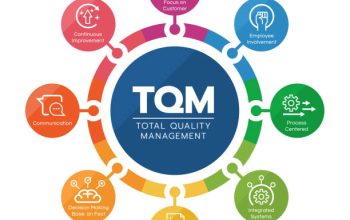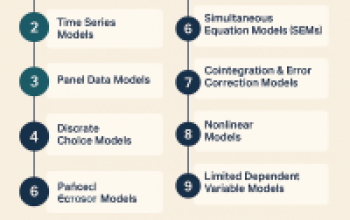PhD Power Calculation Service
Get Professional Power Calculation Service Through Ph.D. Assistance
Power calculation Help for your Sample Size Determination – PhD Assistance Research Lab Experts
Power calculation for your Sample Size determination from Expert Statisticians
Ph.D. Assistance Research Lab has experts in Ph.D. research design consultation and sample size calculations based on power analysis. We have a relationship with leading academic experts from top universities in the UK, US, India, and around the world. Additionally, our Ph.D. mentors have extensive experience with quantitative research methodologies, statistical tests, effect sizes and power calculations, which are all aspects of designing a robust and valid study and ultimately impactful research.
We have experience helping students from top-tier universities such as Oxford, Harvard, IITs, IIMs, etc., comply with specific university requirements and standards. Our environment is collaborative and student-friendly, and every research design is well-planned with strong statistical support, and we guarantee delivery well ahead of deadlines. Whether you are at the proposal stage or moving to data collection, your Ph.D. research is well-prepared and in expert hands.
Our process is simple, transparent, and completely confidential. Upon joining our service, we will pair you with a dedicated subject expert based on your field and research area. We will then set up a one-on-one meeting to help write clear project goals, timelines, and deliverables. Every step, whether research design, framing a methodology, or justifying using statistics, will be done with great care and adherence to academic standards.
Our printed sample size and power calculation reports will take you through the use of prior power analysis (before data collection) and post-hoc power analysis (after your study). We know the value of using several of the statistical programs, including G*Power, SPSS, STATA, and R, to calculate and interpret all of the statistical parameters including alpha (Type I error probability), beta (Type II error probability), effect size, and sample size for the study, and to ensure your study was appropriately powered and statistically sound.
Our professionals assist in determining your appropriate sample size based on the statistical test or method you use in your study. When we refer to a test, it could be one of many, such as multiple regression, logistic regression, ANOVA, MANCOVA, correlation, t-tests, and Chi-square, among others. However, it is essential to understand that the test you choose influences how much data you need to generate. Each statistical method has specific inputs, such as effect size, number of predictors/groups, alpha significance level, and desired power to calculate the required sample size. With options like G*Power, we allow the sample size estimation to reflect the magnitude of whom you are employing for the specific test/research design while ensuring that your study has sufficient power to detect meaningful effects in your writing project and that you will not over-sample or under-sample data.
Our PhD research consultation service encompasses more than just writing. We help guide you, mentor you, and explain each concept through live discussions and brainstorming all of which will help you understand the decisions made during your research. Our service is personalized for you; it is academic; it is goal-oriented; and it is designed to make your path with respect to research smooth, accurate, and meaningful. PhD assistance is focused on building research as accepted academic excellence through an organization you can trust. Not delivering papers.
Our Guarantees – Power Calculation & Sample Size Support
We determine the optimal sample size based on your research, goals, proposed effect size, alpha level (significance), beta (power), and statistical test – therefore ensuring your study has valid, reliable, and reproducible results. We specialize in:
- Prior (a priori) power analysis – Before data collection
- Post hoc power analysis – After data collection
We ensure that whatever statistical program you plan to use (e.g., G*Power, SPSS, STATA, R, or MATLAB), your study does not end up underpowered or unnecessarily over-sampled.
Our experts use your statistical method to determine your sample size:
- T tests (independent & paired)
- ANOVA, MANCOVA
- Correlation & Regression (linear, multiple, logistic)
- Chi-square tests
- Structural Equation Modelling (SEM)
Each statistical method has its own combination of inputs in order to provide a sample estimate, but we work with your unique research design for a customized approach.
Whether you are working on a statistical report, power analysis output, or methodology writing, the work you receive is always original and human-written and all institutions will recognize it. We eliminate any risks that there might be by using Turnitin or AI detectors on your behalf to get the ethical research you produced and that can withstand scrutiny in any form.
We will structure your sample size justification and power calculation according to your university norms, (IITs, IIMs, Oxford, Harvard, Cambridge, UGC etc.) where to include these in your methodology or appendices of the thesis or paper.
Statistical and academic team are made up of specialists in:
Biostatistics and qualitative analysis
Research design experts, with knowledge of detailed knowledge domain knowledge
Editors and proof-readers who know how to word process and write is scientific clearly.
We will change anything to meet supervisor, university or reviewer recommendations—effect sizes assumptions, calculations or agreed objectives.
All project data and calculations stored confidentially and 100% protected. We keep your work secure and comply with the norms of academic integrity while ensuring your research meets the stipulations from your institution.
We set strict timelines on every deliverable.
- Minor edits at 24 hours
- Full revisions at 48 hours
- Rapid response by our expert during business hours (within 30 minutes)
Whether planning a clinical trial, survey research or experimental design our Power Calculation and Sample Size Services help ensure your study starts with scientific confidence and statistical integrity. Let Ph.D. Assistance Research Lab deliver defensible, ethical and accurate results.
Our Power Calculation Service by Subject Area
The PhD Assistance Research Lab offers tailored assistance for you in the areas of PhD research design and biostatistical analysis, including statistical planning, selection of model, and interpretation according to academic and institutional requirements. Our staff has extensive experience in ensuring that you have clarity, practicality, and methodological consistency—assisting you to align your research problem, data organization, and analysis with your intended academic purposes.
Power Calculation Services We Provide
A Priori Power Analysis Before Study
Assessment: Conducted before any collection of data. This is used to ascertain how large of a sample size is needed for your study to report an effect, if it exists, at the appropriate power level.
Required Information: We utilize your desired effect size (either from previous literature or pilot data), α (significance level), and 1 − β (desired power level) to provide a scientifically defensible sample size.
Use example calculations: A priori power analyses will give us calculations using G*Power, SPSS, or R to calculate the number of participants needed for the specific test design you choose (e.g., t-test, ANOVA, regression).
Alpha and Beta Error Control
Pilot Study Integration
Post-Hoc Power Analysis
After Study Assessment: Used after data collection for how well powered your study was in order to detect effects that truly exist.
Evaluation of your findings: We will consider the effect size you anticipated, the sample size, your test results, and your effect size to see how convincing the conclusions you drew were.
Reporting research: Good for publication of research or defence of your thesis in terms of ‘post-hoc’ justifications a reviewer may ask for.
Test-Specific Power Calculations
Customising to your method: We will provide your power and sample size estimates based on the specific statistical tests that you are justifying in your rationale and that are made available in the data structure described in your proposal. This will include tests like:
T-tests (independent, paired samples)
ANOVA / MANOVA / MANCOVA
Linear and Logistic regression models
Chi-square and correlation
Structural Equation Modelling (SEM) and multivariate methods
Multigroup and Repeated Measures Designs
Effect Size Estimation
Key Parameter: The effect size is an important component of power calculations and can often be established from literature, preliminary studies and the clinical significance of the anticipated effect based on the circumstances.
Expectation/Estimation: We can provide you with your expected effect size from average estimates from prior studies (distributed into small, medium and large) or from the level of subject matter expertise available.
Tool-Based Power Calculation
Ethics & Funding Compliance
Order process
Ordering your Power Calculation Service from Ph.D. Assistance Research lab is quick and easy. You need to follow the easy steps given below
Submit Your Requirements and Make Payment
You complete the order form by filling out your research requirements, and then you complete a secure online payment. This will allow us to initiate your planning and method construction process immediately.
Order Confirmation & Expert Allocation
Regular Updates & Two-Way Communication
Editing, Proofreading & Plagiarism Checking
Review &
Revisions
Final Delivery & Feedback
Power Calculation Service Packages
Accurate Sample Size Estimation for Ph.D. Research – Choose What Fits Your Need
Ph.D. Assistance Research Lab offers customized power analysis and sample size determination packages for Ph.D. candidates in various forms of the research process. That is, whether you are preparing a proposal to submit for ethical review, conducting operational testing for your ethical approval, or validating your statistical model after data has been collected, we can support you.
- Selecting a statistical test based on an evaluation of the research design,
- Providing a sample size estimation based on the statistical test using either G*Power or SPSS or R,
- Effect size consideration using (either the default of a specified study effect size),
- A report suitable for inclusion in a proposal or methodology chapter,
- 1 revision (not correction).
Timing: 3-5 working days
✅ Compliant for of ethics, university or journal submission
- A priori power analysis and effect size description,
- Identification of the most appropriate statistical test (t-test, ANOVA, regression, etc.),
- Alpha, beta, and effect size Ph.D. rationale,
- Descriptive report with interpretive and graphical representation,
- 2 revisions provided in the package,
- 30 minutes for the researcher consultation (it's in the package).
- A priori and post-hoc power analysis
- Simulation based calculation (R, MATLAB, STATA)
- Multigroup/predictor power analysis
- Sensitivity and assumptions analysis
- Graphs, assumptions, and report structure
- Editable outputs and one consultation (1 hour)
- Infinite revisions until senior supervisor approval
Power Calculation Tools at PhD Assistance Research Lab
Precision-Driven Sample Size Estimation Backed by Trusted Statistical Software Precision-Driven Sample Size Estimation Backed by Trusted Statistical Software At PhD Assistance Research Lab, we are using a suite of widely known statistical software packages to provide precise power calculations and sample size determination for your PhD research. The following tools are applied by our PhD-educated statisticians in accordance to the research design and methodology applied, as well as the required statistical tests.
Our primary tool used to conduct both prior and post-hoc power analysis. We use it to calculate the minimum required sample size for a range of tests including t-test, ANOVA, chi-square statistic, and regression models. We will ensure your study meets the expectations of academia in respect to statistical power.
In conducting sample size estimations, we absolutely use it to connect to real-time derived descriptive data, perform post-hoc power analyses, and report effect sizes in the methodology section. This tool has particular utility to psychology, social science and public health theses.
When conducting a tailored high-level power analysis, we rely on R and R-packages such as pwr and simr. By utilizing simulation techniques, we can explore a range of research ideas, specifically the key areas of biostatistics, clinical trials, and longitudinal studies.
STATA is typically utilized for complex sample size calculations in mix-modeling that includes logistic regression or survival analysis, and area-based or panel data. Statistical professionals in our group are able to produce appropriate power calculations for use in economic-modelling and health studies projects.
For works of engineering, life science, or algorithm-heavy designs, we use MATLAB to perform simulation-based power calculations. This approach is valuable to a range of practitioners involved in signal processing, biomedical research, and as applied to quantitative modelling.
SAS, for regulatory stipulations, was appropriate for power and sample size analysis particularly industry-related clinical trials geared towards confidentiality and resulted in a reliable analysis with expectations of meeting FDA and ICH-GCP aligned conformity of statistical documentation.
What You Receive:
• A finalized, tool backed power analysis report
• Accurate sample size justification for your proposal or thesis
• Clear tables, plots and editable documentation
• Consultation on test choice, effect size estimation, and assumptions
• Adherence to university guidelines and ethics committee standards
Whom We Serve Power Calculation Services
We are here to support you; if you are a PhD student or doctoral candidate who is undertaking quantitative research or a biostatistical research project, we could become your partners! We offer complete support in power analysis and sample size determination for quantitative studies. We can assist in determining sample sizes for your study population in your quantitative studies with your chosen statistical tests (e.g., ANOVA, regression, survival analysis), confidence level, and effect size as the prescribed conventions. We also support statistical programs including SPSS, R, SAS, STATA, G*Power, and Python.
We engage with universities, through supervisors, research committees, departments, and colleges to improve, advance, and strengthen the statistical rigor of research projects. We are committed to supporting research projects by designing statistically valid studies with appropriate power and sample size calculations, being sure they call into question a project that is both consistent with the institutional ethics policies and maintains the integrity of academic integrity.
We provide comprehensive statistical support to independent researchers, academic authors, and academic researchers in all of the disciplines of research (medicine, psychology, education, engineering), including: Selecting statistics that align with your research objectives Conducting a priori power analysis to determine if you will have enough sample size Supporting multivariate analysis (e.g., PCA, factor analysis), where sample size considerations are quite complicated.
We provide support on all biostatistical factors relevant to clinical trials, observational studies, and health system evaluations for clinical professionals and medical researchers, including: Calculating the power and sample sizes for either randomized or observational studies Making sure studies meet relevant regulatory and ethical considerations Advising in terms of appropriate statistical planning for the purposes of ensuring grant applications and research publications can be published in a peer-review platform etc.
We offer statistical consultancy services to commercial or industry research and development departments to inform evidence-based product development and user orientated research projects, such as: Sample size planning for employee surveys, usability testing, experimental designs A priori power analysis to justify resource allocations required to complete research and support evidence based, data-driven decision making. Statistical collaboration for exploratory internal studies and pilot trials.
We work with students and scholars from a variety of countries – e.g. UK, US, Australia, UAE, India, Europe – who require region-based statistics services, e.g., but not limited to:
- Tailored sample size and power calculations suitable to institutional university/journal standards
- Support tools, e.g., G*Power (for EU/US statistical standards) and R, STATA, or SPSS
- Conformity with institutional rubrics or frames for quantitative methodology.
Check Where You Are in Your Research Journey And Discover How You Fit into Our Power Calculation Support Model
Matteo

A Priori Power Calculation & Methodological Justification We assist you in the a priori power analysis based on your hypothesis, power level (e.g. 0.80), level of significance (α), and assumed effect size. You are provided and will document a clear rationale for your sample size decisions for your thesis or proposal as justification for the decisions made.
Sofia

Post-Hoc Power Analysis & Justification Report We can assist in evaluating your sample size for detecting real effects based on statistical power calculations. Not only will our experts produce a justification report and provide interpretations of power levels, but they can assist you with linking your results in accordance with journal requirements.
Elena

Retrospective Power Analysis for Ethics or Journals Our statistical experts use an array of tools (e.g., G*Power, R, or SPSS), to conduct a retrospective power analysis, after the fact, to assess the power of your study. This aids in validating the strength of your data so you and confidently meet ethics review, or peer-review requests accordingly.
Daniel

Assumption Testing + Sample Size Sensitivity Analysis Our assumption checking (e.g., normality, homogeneity) and sensitivity analyses are on point to help you determine if your sample size was enough. Our experts not only help you report statistical robustness but also do so in a clear and compliant way.
Our Guarantee

Plagiarism Free

Unlimited Support

On-time delivery

Subject Matter Expertise

Communicate with your writer

Updated academic resources

Free research articles supply*
Our Sample & Example Works Speaks
Client success stories
What Our Clients Say: Power Calculation Success Stories
Expert Help with Sample Size Determination

"I was uncertain how many participants to include in my education research project. Was it 50 or 150? Ph.D. Assistance Research Lab took me step-by-step through a straightforward power analysis so that I had clarity on how to identify the statistical test I was going to use and what my sample size needed to be. The clarity this provided for my methodology was invaluable."
— Dr. Aisha Rahman, PhD Candidate in Educational Psychology, UAE
Quick Turnaround Timing Before My Proposal Submission

"I was under the gun with a timeline before submitting to the ethics board so I had no idea how to calculate the sample size for a logistic regression model. Ph.D. Assistance was able to produce a fully fleshed out a priori power analysis report, with effect size assumptions, the rationale for the test, and graphs, all in three days!"
— Carlos Mendes, Doctoral Researcher, and Public Health, Portugal
High Quality Power Analysis with Interpretation

"The power calculation report I received was much better than I anticipated--technical but readable. They explained why my study required a bigger sample based on the effect size from the existing literature and provided adequate SPSS and GPower output to support their explanation. It certainly made my ethics application stronger and subsequently, my defence."
— Mei Lin, Ph.D. Candidate Biomedical Research, Singapore
Well-Formatted Justification for Journal Submission

"A peer-reviewed journal asked for justified sample size and how the power level was determined. The Ph.D. Assistance team prepared a thorough justification for me ready for publication and even with proper formatting and graphs/ power curves. It fit neatly into my manuscript and was accepted without question."
— Jacob Stein, Research Fellow Health Informatics, Canada
Rigorous Post-Hoc Power Validation

"When I finished my study, I was not entirely sure about the power of my sample size to detect the effects I found. The team did a post-hoc power analysis to check my work and determined that my data held up! Their statistical guidance will be an added layer of credibility to my thesis!"
— Ananya Patel, Ph.D. Researcher in Clinical Psychology, India
Quality & Compliances
We’ve worked on so many great PhD projects for our clients across the globe, and we’re proud of every single task that we carry out
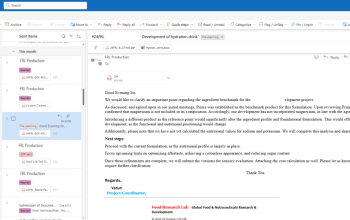
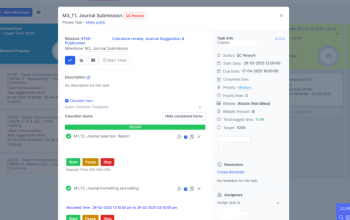
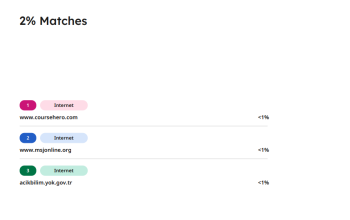
Frequently Asked Questions.
We can provide full statistical assistance for a priori and post-hoc power analysis, to ensure that your project has optimum sample size and also sufficient power to obtain meaningful results. We provide help with:
- Sample size calculations for a range of hypothesis tests (t-test, ANOVA, chi-square, regression)
- Effect size estimates calculated from pilot data, or the literature
- Power Curves and sensitivity analysis
- Post-hoc power analysis after data collection
- Justifying your test selection for a proposal or ethical application
- Using tools such as G*Power, R, SPSS, STATA, MATLAB, and SAS to produce outputs
- Structure your report in thesis or journal-ready submission format
Our statisticians will utilize the appropriate methods with validated statistics software. This will include some of the following (depending on your research design, and all with power analysis):
- One-tailed and two-tailed structure.
- alpha (type I) error and beta (type II) error levels and values.
- power analysis for t-tests, ANOVA, and chi-square tests.
- regression modelling (e.g., linear regression, logistic, Cox regression).
- Calculating sample size for set proportions, variances, means.
- Survival analysis and relative/absolute risk calculations.
- Calculating confidence intervals, confidence limits, and margin of error.
- Simulation based sample size calculations for more complex modelling.
Yes. Once we have assigned a project to your request, you may contact your assigned expert with email, Zoom, or a call setup by our project coordinator. Your study is important to us, so we facilitate clear communication and academic consultation specific to your study.
To allow provide you with an accurate answer, there is some information I require:
- Research topic or hypothesis you want to investigate.
- Proposed statistical test/model.
- Assumed effect size (if any, acquired from literature or pilot study).
- Power, you desire (typically 80%, 90%) and alpha (e.g., 0.05 if desired).
- If a post hoc analysis on your raw database is desired, and not an output of prior research.
- Any sample size requirements from your university or the journal for you to report
Yes, our competitive pricing is determined by complexity, turnaround time, and depth of analysis required. We also provide seasonal offers, bundles, and offer referral options. If you would like a quote based upon your specific needs, feel free to contact our project team!
No. Our business policy allows for unlimited free revisions if you are the satisfied customer, and so if you want to change assumptions, change effect size, change the justification for a statistical test, we will revise the report free of charge as long as it complies with the original scope of work.
Insights

A Proper Research Manuscript Writing Paper must have a good topic,…









